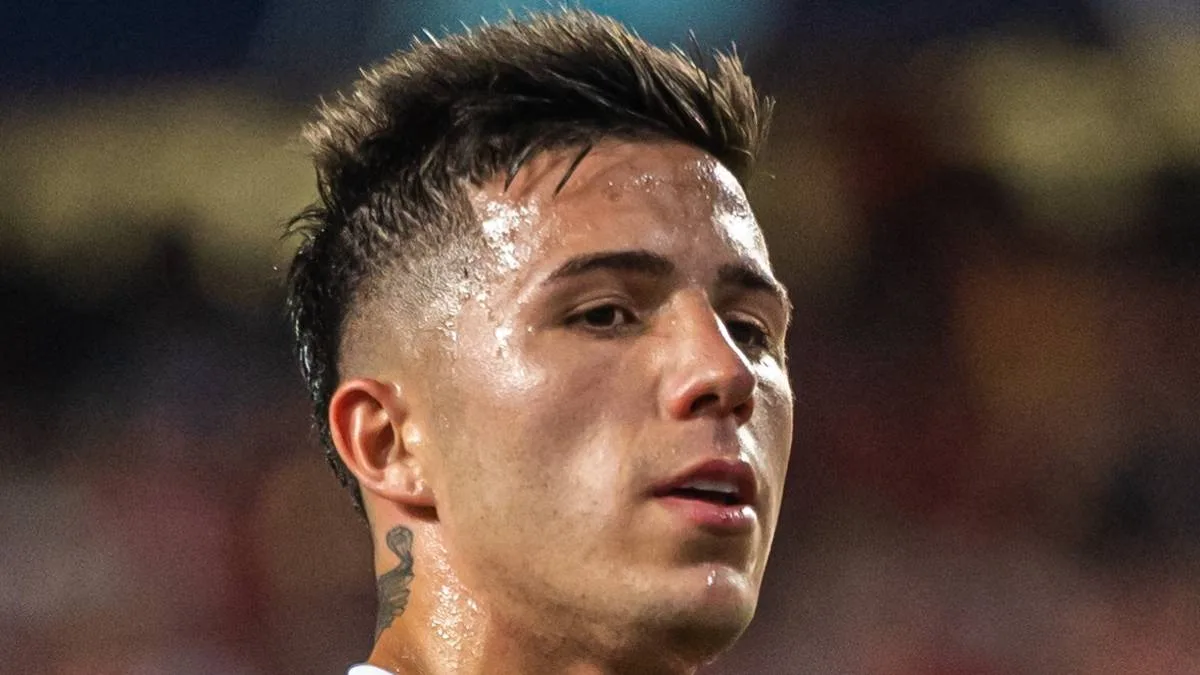Chelsea midfielder Enzo Fernandez has voiced strong concerns over the extreme heat conditions at the ongoing FIFA Club World Cup in the United States, describing them as “very dangerous” for players and the quality of the tournament.
The Argentine international has featured in all six of Chelsea’s matches en route to Sunday’s final showdown against Paris Saint Germain in New Jersey, where temperatures have soared as high as 38 degrees Celsius.
Speaking ahead of the final, Fernandez revealed the toll the scorching conditions have taken on players. “Honestly, the heat is incredible. The other day I had to lie down on the ground because I was really dizzy,” he said. “Playing in this temperature is very dangerous. It affects the game, the players, and even the people watching it at the stadium or at home. Everything becomes very slow.”
Manager Enzo Maresca echoed the midfielder’s concerns, stating that it had become “impossible” to conduct normal training sessions due to the blistering heat. Chelsea defender Levi Colwill also admitted that the last round was so intense he “felt bad” for teammates having to endure it on the pitch.
The issue has not been limited to Chelsea alone. PSG boss Luis Enrique noted before his side’s 4-0 semi-final win over Real Madrid that the afternoon kick-offs have made conditions difficult and that it is “not good for the show.”
Fernandez, who is expected to be part of Argentina’s squad for the 2026 World Cup, urged FIFA to reconsider future scheduling. “Let’s hope that next year they change the schedule, at least so that it remains a beautiful and attractive football spectacle,” he said.
The intense summer heat across the U.S. has already triggered multiple local weather alerts, advising the public to avoid strenuous outdoor activities. Fifpro, the global players’ union, recently criticised the scheduling of Chelsea’s earlier fixture against ES Tunis in Philadelphia, saying the match should have been delayed or postponed.
Jurgen Klinsmann, a member of FIFA’s technical study group and veteran of the 1994 World Cup in the U.S., recalled similar challenges in Dallas. “The heat is difficult. If you play in 90-degree heat then you are going to suffer,” he said. “We were leading 3-0 at half time, South Korea made it 3-2, and another five minutes would have made it 3-3.”
FIFA, in response to the widespread criticism, said 31 of the 54 matches played so far included cooling breaks, and the organisation remains open to further dialogue through its task force on player welfare. “Heat conditions are a serious topic that affect football globally. The protection of players must be at the centre,” FIFA said in a statement.
As Chelsea prepare for their clash with PSG in what promises to be a thrilling final, the spotlight remains firmly on how football’s global bodies will address the growing concern of climate and player safety in high-stakes tournaments.







